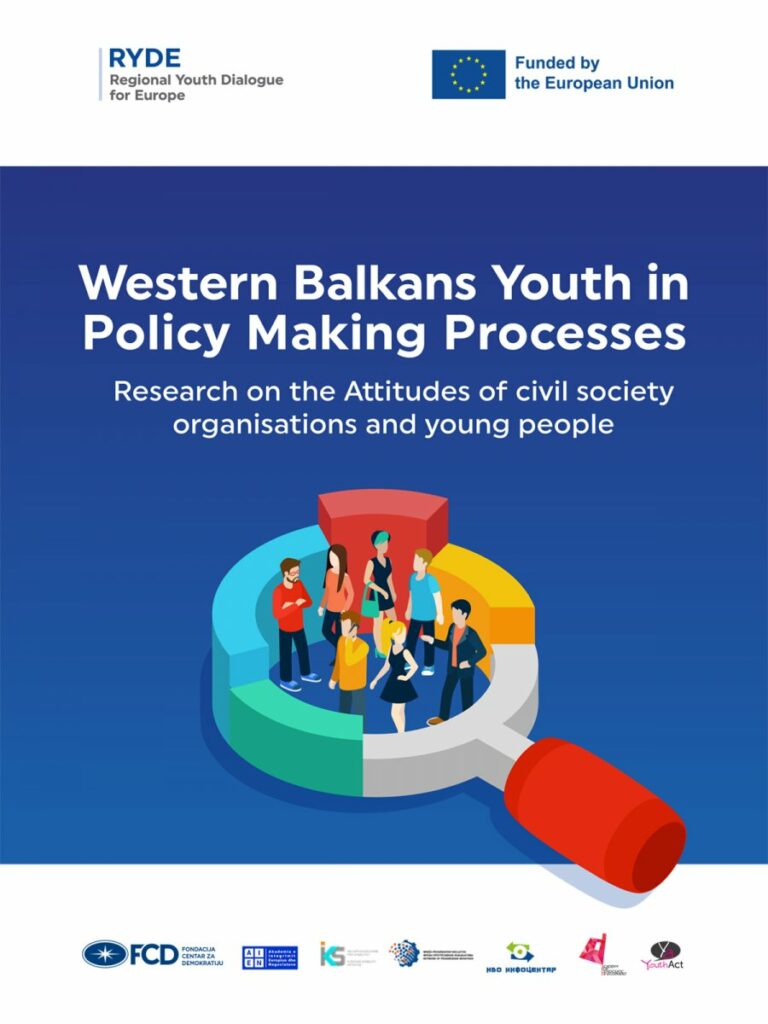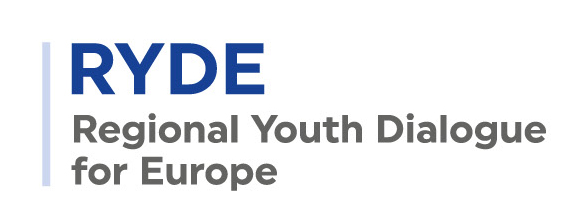
Network of Progressive Initiative organised the promotion of the key findings and recommendations of the research on the youth policies and policy-making processes in the Western Balkans, which has been conducted as part of the regional project entitled Regional Youth Dialogue for Europe – RYDE.
The aim of the research is to increase overall awareness by collecting relevant data concerning youth policies and social investment in the Western Balkans. The research provides an analysis of the current viewpoints held by both youth organisations and youths themselves, regarding youth policies in this region. The research covers six economies: Albania, Bosnia and Herzegovina, Kosovo*, Montenegro, North Macedonia and Serbia.
In the period from August to October 2023, for the purposes of the research, a total of 151 interviews were conducted with representatives of CSOs from the Western Balkans. The interviews were followed by an online survey conducted during October and November 2023. 1,366 young individuals from the Western Balkan countries participated.
Anida Šabanović, representative of the partner organisation Network of Progressive Initiatives, presented key findings and recommendations at the level of the Western Balkans.
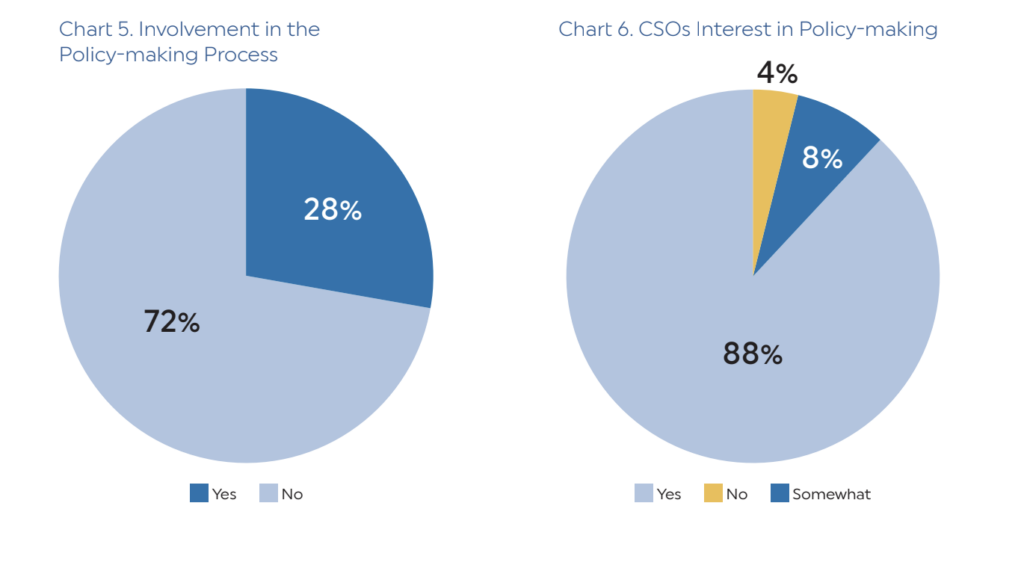
Only 28% of the organisations questioned had been part of the policy-making process, while the majority had never partaken in this process. Their non-involvement, however, is not the result of a lack of interest, as 88% of the organisations answered ‘yes’ when asked if they are interested in this process. Interest in involvement is high, yet, there are certain elements which make involvement in this process difficult.
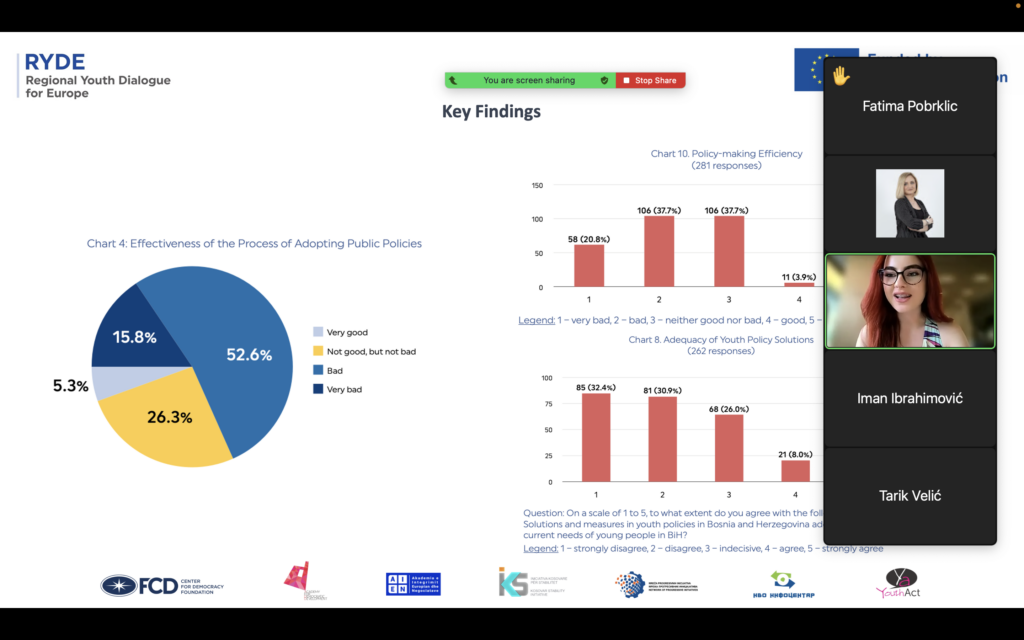
Researchers Hata Kujraković and Daniel Lazarević presented the results of the research for Bosnia and Herzegovina. In Bosnia and Hercegovina, the youth organisations survey involved 26 interviews with representatives from diverse organisations, while the online survey gathered 281 responses from youth activists, politicians, scholars, and journalists.

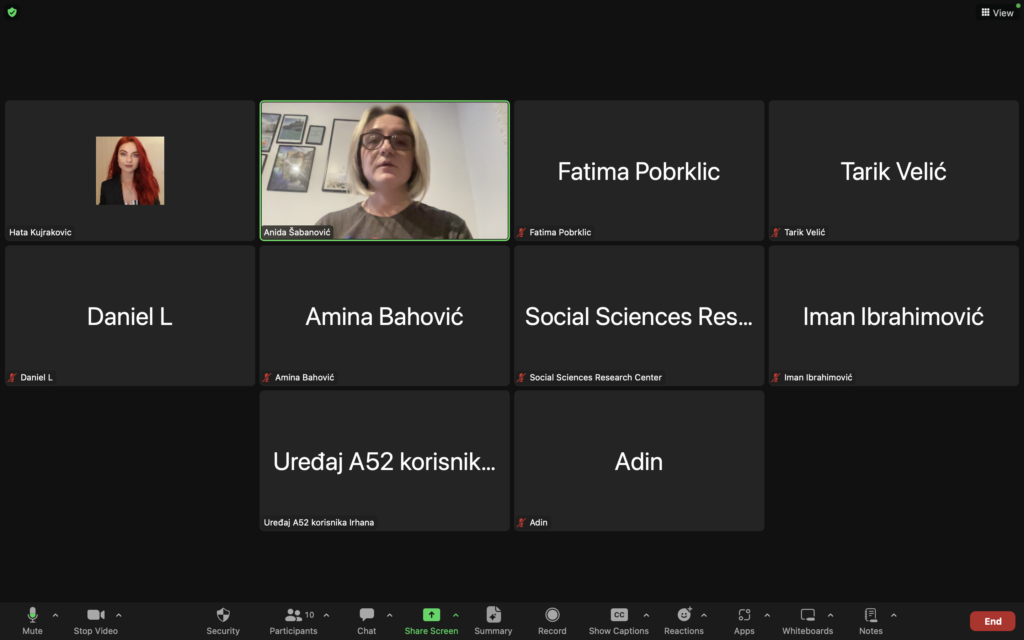
The process of adopting public policies, especially youth policies, was criticised for inefficiency, bureaucratic obstacles, and lack of transparency. CSOs, particularly overarching youth councils, actively participated in advocating for youth policies but faced obstacles like inadequate funding and limited networking opportunities. Calls were made for more proactive collaboration, effective communication, and stronger youth participation in policy-making. While familiar with the public policy-making process, online survey respondents deemed its efficiency less impressive. Approximately two-thirds were aware of mechanisms for involving youth activists. Local level policy-making was perceived as more inclusive, with challenges including lack of political support, awareness gaps, limited resources, and political polarisation. Vulnerable youth groups, including those with disabilities, rural youth, LGBTIQ, ethnic minorities, and women/girls, were identified. Organisations advocating for marginalised groups often lacked sufficient capacities. There was a consensus on the need for more inclusive policies and increased support for organisations focusing on vulnerable groups.
Summary in local language is available here
The report in English is available here
